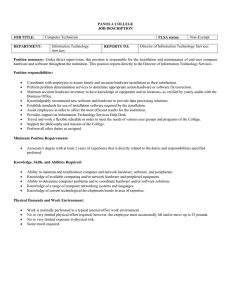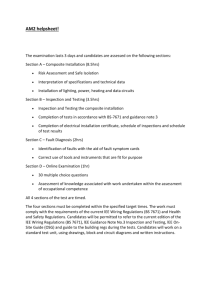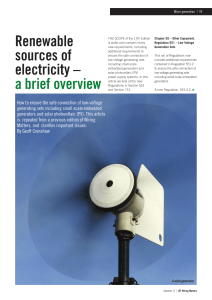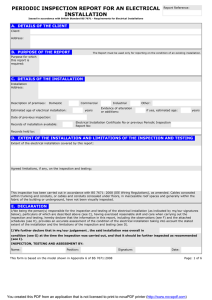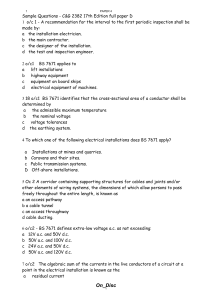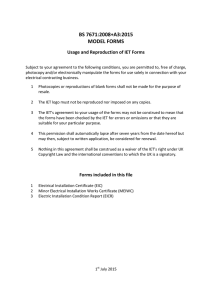Initial Verification - DJT Electrical Training
advertisement
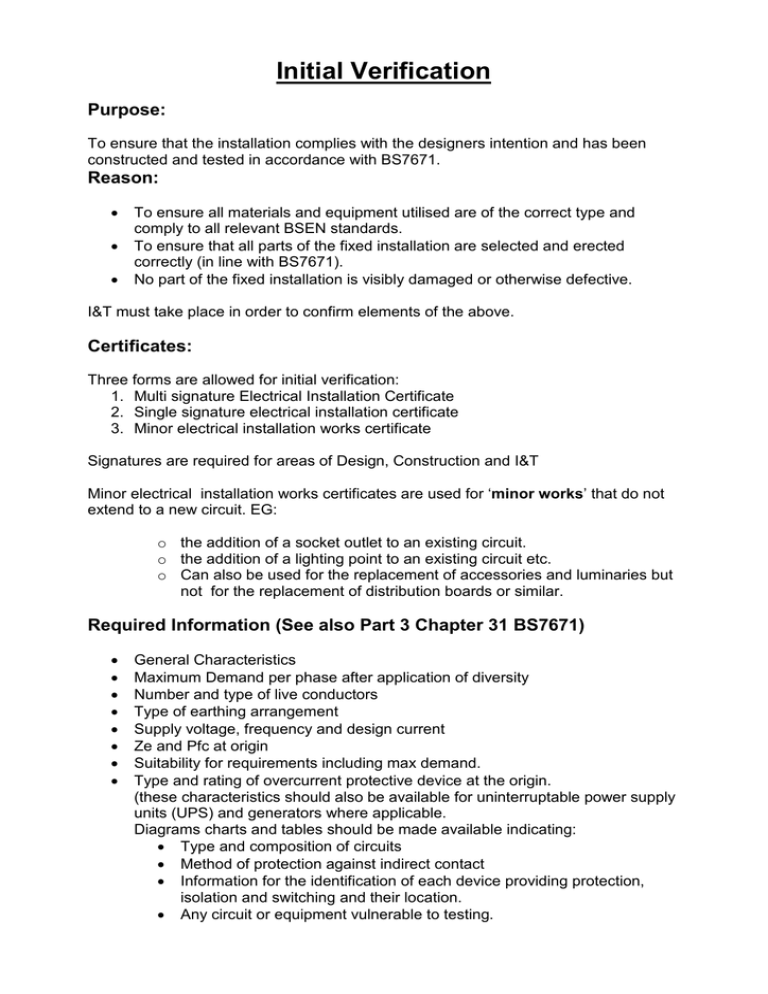
Initial Verification Purpose: To ensure that the installation complies with the designers intention and has been constructed and tested in accordance with BS7671. Reason: To ensure all materials and equipment utilised are of the correct type and comply to all relevant BSEN standards. To ensure that all parts of the fixed installation are selected and erected correctly (in line with BS7671). No part of the fixed installation is visibly damaged or otherwise defective. I&T must take place in order to confirm elements of the above. Certificates: Three forms are allowed for initial verification: 1. Multi signature Electrical Installation Certificate 2. Single signature electrical installation certificate 3. Minor electrical installation works certificate Signatures are required for areas of Design, Construction and I&T Minor electrical installation works certificates are used for ‘minor works’ that do not extend to a new circuit. EG: o the addition of a socket outlet to an existing circuit. o the addition of a lighting point to an existing circuit etc. o Can also be used for the replacement of accessories and luminaries but not for the replacement of distribution boards or similar. Required Information (See also Part 3 Chapter 31 BS7671) General Characteristics Maximum Demand per phase after application of diversity Number and type of live conductors Type of earthing arrangement Supply voltage, frequency and design current Ze and Pfc at origin Suitability for requirements including max demand. Type and rating of overcurrent protective device at the origin. (these characteristics should also be available for uninterruptable power supply units (UPS) and generators where applicable. Diagrams charts and tables should be made available indicating: Type and composition of circuits Method of protection against indirect contact Information for the identification of each device providing protection, isolation and switching and their location. Any circuit or equipment vulnerable to testing. Scope This should indicate the extent and any limitations Frequency (see GN3 page 68) The designer decides the frequency and inserts on initial Certification form. The interval is noted on the EIC Notice of the next date should be placed in a prominent position near to the origin of the installation. Initial Inspection General Procedure (see detail GN3 p.14) Where appropriate, inspection and testing should be carried out and recorded through the various stages of erection. Items would include (but not be limited to) Connection of conductors Identification of cables and conductors Routing and selection of cables and conductors Correct Polarity (visual only) Connection of accessories and equipment Selection and erection to minimise fire Measures employed to provide both fault and basic protection (direct and indirect contact) Measures employed for Basic Protection only(Direct Contact) Measures utilised for Fault Protection only (or against indirect contact) Prevention of mutual detrimental influence Correct Isolating and switching devices Choice of Protective devices Labelling of protective devices, switches etc. Access to switchgear Danger notices/diagrams etc. (see p.20 GN3) Erection methods Further detail behind the above inspection procedure is given between pages 11 & 28 of GN3.

